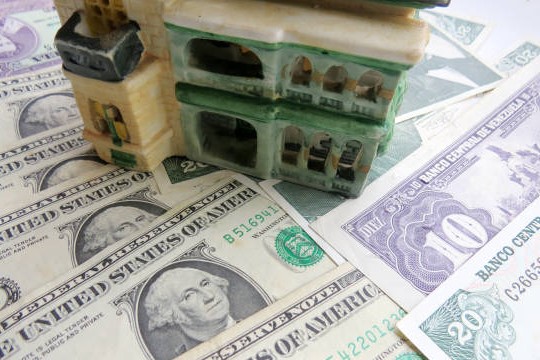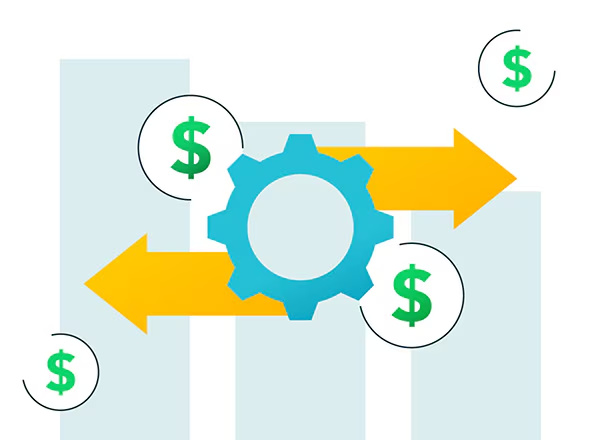Thousands of finance experts, company founders, and investors are gathering in Riyadh for the eighth Future Investment Initiative. This is Saudi Arabia’s main economic conference and a key part of Vision 2030—the country’s multi-trillion-dollar plan to modernize and diversify its economy.
In past years, some attendees saw the conference as a chance to easily secure Saudi investments. However, fund managers told CNBC that things are different this year. Saudi Arabia now has stricter rules for those seeking funds, and there’s less money available due to lower oil prices and production.
“Attracting money from the kingdom has become much more competitive,” said Omar Yacoub, a partner at U.S.-based investment firm ABS Global, which manages nearly $8 billion in assets. “Everyone is coming to Riyadh to seek investments.”
Yacoub added, “Competition for capital has increased. Saudis prefer investing at home, and with a tighter budget due to lower oil prices, investing internationally has become more selective.”
As Saudi Arabia focuses on investing within the country, it has set tougher conditions for foreigners wanting to take capital elsewhere. The Public Investment Fund (PIF), Saudi Arabia’s $925 billion sovereign wealth fund, saw its assets grow 29% to 2.87 trillion Saudi riyals ($765.2 billion) in 2023, mainly due to local investments.
The kingdom’s updated Investment Law aims to attract more foreign investment, with a goal of $100 billion in annual foreign direct investment by 2030. Currently, foreign investment averages around $12 billion per year since Vision 2030 was announced in 2017.
“It’s no longer about ‘take our money and leave’—it’s about adding value,” said Fadi Arbid, founding partner and chief investment officer of Dubai-based Amwal Capital Partners. “Adding value means hiring people, developing the asset management ecosystem, creating new products, bringing in talent, and investing in Saudi capital markets. It’s not just about financial transactions.”
Saudi Arabia Becomes More Selective with Investments
The kingdom is also cutting back on spending as oil prices fall below the level needed to balance its budget, and it continues to reduce crude production as part of OPEC+ agreements. The International Monetary Fund (IMF) estimates that Saudi Arabia needs oil prices at $96.20 per barrel to balance its budget in 2024—a 19% increase from the previous year.
“I don’t think Saudi Arabia has the same financial means as it did two years ago,” said a regional investor who wished to remain anonymous. “However, the kingdom still has money to invest. It’s just more disciplined and rational now.”
Some experienced fund managers suggest that investors should have started building relationships with Saudi Arabia years ago. “You should have begun that process two, three, four years ago,” Arbid said. “For those entering now, it doesn’t mean they shouldn’t position themselves, but the kingdom is more deliberate—they want you to commit to the country.”
An example is Saudi Arabia’s headquarters law, effective from January 1, 2024, which requires foreign companies operating in the Gulf to base their Middle Eastern headquarters in Riyadh if they want contracts with the Saudi government.
Conference Amid Regional Tensions
The conference at the Ritz-Carlton Riyadh is happening against the backdrop of regional tensions. Over the past year, Israel has been involved in conflicts with groups like Hezbollah and Yemen’s Houthis. In September, Israel launched an operation in Lebanon, and tensions have been high since Israel’s response to missile attacks over Tel Aviv and other areas on October 1.
Early on Saturday, Israel struck military sites in Iran targeting missile factories. Israel’s military later stated it had completed “targeted” attacks in Iran and was ready for “defensive and offensive action.”
So far, oil prices and the Saudi economy have remained relatively unaffected, dropping 4% early Monday after Israel’s strike on Iran. This stability may be due in part to the reconciliation agreement Saudi Arabia signed with Iran, brokered by China in March 2023.
“Saudi Arabia has done a phenomenal job recently of shielding itself from geopolitical events,” Arbid said.
Local investors make up the majority of market participants, and confidence is strong. The Tadawul All Shares Index, Saudi Arabia’s main stock market index, is up 16.48% over the last year.
However, some regional analysts warn that ongoing conflicts could lead to further instability. “The war has escalated to a de facto regional war,” said Aziz Alghashian, director of research at the Observer Research Foundation Middle East. “The continuation of it has the potential to create more radicalization in and around the region.”
“Attracting foreign direct investment and tourism, while maintaining oil prices at desired levels, are key for keeping Saudi Arabia’s mega projects and diversification plans on track,” Alghashian added. “This is complicated by regional conflicts, so the economy and security go very much hand in hand.”






